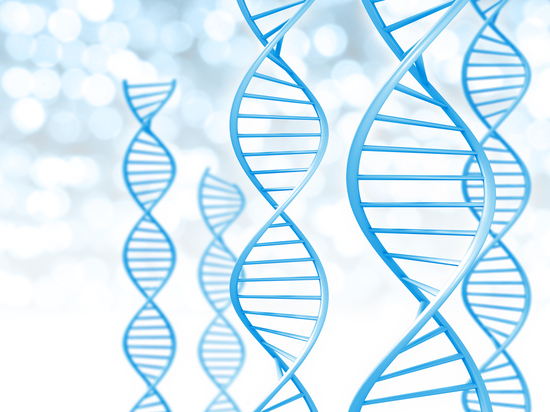Image via Shutterstock
Maybe it was the Jolie effect. Or you want to find out if you're carrying a silent genetic mutation that could be passed on to a child. Or perhaps you're just really hoping you can blame your DNA for how awful cilantro tastes. Whatever the reason, you're interested in finding out something about your genome. Now what?
Though consumer genetic testing and personal genome sequencing are still nascent fields, every indication suggests that the public will have a virtually insatiable appetite for genetic data. And as scientists get better at establishing links between DNA and diseases or specific traits, that demand will only increase.
But are we ready for this data? Sure, massive-scale scientific instruments can churn out DNA information at breakneck pace, but is the rest of the scientific, medical, and social infrastructure in place to analyze, interpret, and protect it? At the moment, the short answer is no. But this is a major focus for the biomedical community right now, and improved solutions are being developed almost daily.
At the moment, there are several ways to get your hands on your own genetic data. Services like 23andMe and Ancestry.com offer direct access to basic genealogical information that can be gleaned from your genome. By going through a physician or genetic counselor, you can get targeted clinical results -- such as your carrier status for a certain disease or whether you have a genetic variant that makes you more susceptible to cancer -- or even your whole genome sequence. (As we reported earlier this year, genetic counselors may be more likely to order a DNA test on your behalf than a physician. Here's a list of companies offering personal genomic tests.)
For the most part, providers of this information will attempt to offer a useful interpretation of your data. A hereditary cancer test or carrier screening test will come back indicating positive (increased risk) or negative (normal risk). Ancestry testing will show on a map where your ancestors came from, likely with percentages for how much different regions contributed to your DNA. Even if you get your whole genome sequenced, part of the service will include talking with a genetic counselor to go over any major findings. Given how early we are in the genomic era, there are relatively few major findings; most people who get their genome sequenced today won't learn anything truly life-changing.
It's worth noting that the interpretation you get may not be complete. For example, if you're clinically tested for a mutation linked to heart disease, the result you get back -- an interpretation of whether your genetic code places you at increased risk for heart disease -- may not mention it if one of the genes analyzed also happens to reveal your risk for developing Alzheimer's disease.
Most people who get genetic results today, especially if they go through a medical professional, stop the journey when they learn the answer to their specific question. But some people dig deeper, which is possible with low-cost services such as Promethease. You upload your genetic data, and these services churn through it to deliver more information. In our earlier heart disease example, these kinds of services might alert you to your Alzheimer's risk even though the clinical lab didn't. This kind of offering has great value, but comes with a significant caveat emptor: you may learn something you didn't want to know.
Perhaps the murkiest element of genetic testing today is how to protect your data. Results from a targeted clinical lab test are governed by the same laws that protect other medical information, but data from other sources is not. Generally speaking, if your genetic information was ordered by a physician or genetic counselor, it is likely to be protected as medical data. But if you got the information on your own, or if you send data from a medical test to a third-party analysis service, protecting the data is your responsibility.
A federal law prohibits health insurance companies and employers from discriminating against people based on genetic information, but it does not apply to companies providing disability, life, or long-term care insurance. While the genetic data landscape remains something of the Wild West when it comes to information security and privacy, many experts advise caution. Treat your genetic data as you would other highly confidential information. And if you choose to use third-party interpretation services, carefully check their policies on data protection, privacy, reuse, and ownership before you submit your information.
The convergence of technology and health care will be a central topic at our day-long Techonomy Bio event, March 25, in Mountain View, California. Click here to learn more.
This post was originally published at Techonomy.com.
